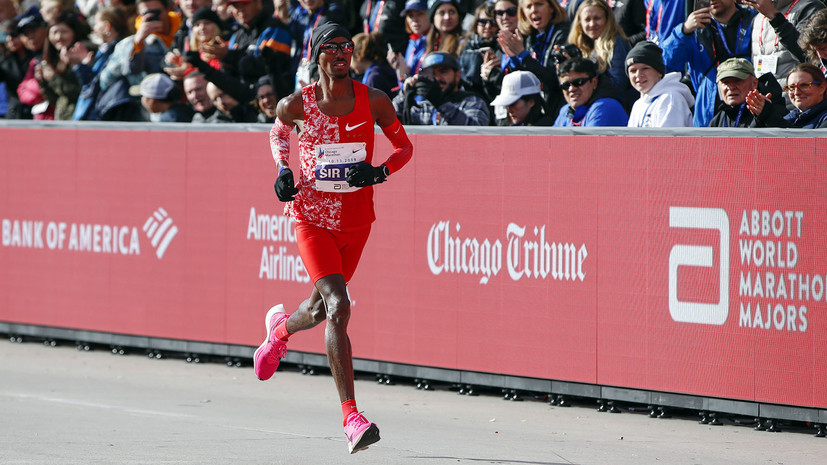“Do not be surprised at criticism from Russia”
The UK Anti-Doping Agency (UKAD) has been harshly criticized for refusing to submit samples of the runner Mo Farah to the World Anti-Doping Agency (WADA) as part of an investigation into violations by his former trainer Alberto Salazar. Margarita Pakhnotskaya, Deputy Director General of the Russian Anti-Doping Agency (RUSADA), expressed bewilderment at the actions of British colleagues who violate the rules, which should be the same for everyone without exception.
“According to clause 6.5 of the World Anti-Doping Code, subsequent additional analysis of samples can be carried out at any time solely at the direction of the anti-doping organization or WADA. Any opacity on either side - and this is not just about UKAD - creates a wall of mistrust in the country's anti-doping system and, accordingly, its athletes as part of the system, ”Takhnetskaya quotes TASS.
German journalist Jayo Zeppelt did not stand aside. Commenting on the RUSADA statement, he called the UKAD actions ridiculous.
“They should not be surprised that only Russia criticizes them. It really creates a cloud of mistrust, ”concluded Seppelt.
In October 2019, the multi-year investigation initiated by the US Anti-Doping Agency (USAD) came to an end. According to its results, Salazar was disqualified for four years for helping to violate anti-doping rules.
Under his leadership, Farah achieved the greatest success in his career, including winning four gold medals at the Olympic Games in London and Rio de Janeiro at distances of 5,000 and 10,000 m. Despite this, no complaints were made against the athlete.
At the same time, WADA announced that they would closely monitor all of the former wards of the mentor. Most of the questions were raised by the fact that Fara did not stop working with Salazar after the first allegations of anti-doping rule violation that appeared back in 2015. Craig Reedy, president of the organization, said runner’s samples from 2010 to 2017 should be cross-checked.
However, on January 17, it became known that UKAD refused to transmit the requested data. According to its head, Nicole Sapsted, confiscation must have good reason. In addition, re-opening the samples may violate the integrity of the material.
“If one of our colleagues makes a statement:“ I have reason to believe that there is doping in the samples of these athletes and the autopsy is part of the investigation, ”I will be the first to say:“ Take it, please. Can we help you? ” But I do not intend to risk the samples contained in the repository, which can allow us to conduct repeated studies when science takes a step forward, ”Sapstead quoted The Guardian as saying.
Well-known sports lawyer Artyom Patsev believes that WADA should at least threaten UKAD with deprivation of compliance status. He cited the example of a Moscow laboratory that lost its rights after its head, Grigory Rodchenkov, refused to transmit data to international anti-doping authorities.
“UKAD’s references to the fact that they plan to store these samples until new research methods are available have nothing to do with WADA’s unconditional right to, at their discretion, require the transfer of samples at any time from any anti-doping organization. And the head of the organization cannot but know this, ”said Patsev.
Outrage over the statement Sapsted expressed a member of the State Duma Committee on Physical Culture, Sports, Tourism and Youth Affairs Dmitry Svishchev. According to him, the reaction of WADA in a tightened situation will be indicative of the entire world sport.
“The fact that UKAD decided not to provide samples of its athlete suggests that doping is encouraged in Britain at the state level. If this incident is hushed up, then we will again witness the policy of double standards, under which the worst of them, unfortunately, are unfairly applied precisely to Russia, ”RIA Novosti quoted Svishchev as saying.
Ironically, the 2015 world champion in hurdling Sergey Shubenkov reacted to the incident.
What could it be? Tthttps: //t.co/aZ1j7aPiqJ
- Sergey Shubenkov RU (@serg_shubenkov) January 18, 2020
